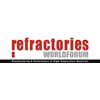Tata Steel to Invest €12 Million in French Steel Mill to Make Longer Premium Rails
07/25/2012 - Tata Steel has announced it will invest more than €12 million in new technology so it can produce longer wear-resistant rails at its French steel mill.
Tata Steel has announced it will invest more than €12 million (£10m) in new technology so it can produce longer wear-resistant rails at its French steel mill.
The new technology will enable Tata Steel to heat treat rails of up to 108 meters in length at its Hayange facility in the Lorraine region of northeast France. Heat-treated rail can last up to three times longer than standard rail when used in high wear conditions such as heavy traffic, high axle loads or tight curves.
Gérard Glas, head of Tata Steel’s Rail Sector, said, "This investment reinforces our commitment to developing a range of premium rail products suitable for different environments around the world.
"Investing in a new heat treatment plant will open up new European market opportunities to us. We will be able to meet the needs of customers in Germany, Switzerland, Belgium, The Netherlands, Luxembourg and Scandinavia who are demanding longer length heat-treated rail to reduce life cycle costs.
"It will also allow us to continue to support existing markets, such as Brazil, Gabon, Mauritania and South Africa where rails have to cope with heavier axle loads, as well as metro systems in Hong Kong, India and Singapore where heat-treated rails have exceptional technical performance in demanding traffic conditions."
The new heat treatment plant will be in addition to an existing heat treatment line at the Hayange mill which can process rail of up to 36 meters in length. The new plant, which is expected to be completed by autumn 2013, will double the annual output of heat-treated rail from 55,000 to 120,000 tonnes. Rail production will not be affected by the construction project.
Tata Steel’s heat-treated rail is produced using a unique patented process that ensures it has exceptional wear resistance. The rail moves through an induction furnace which uses an electromagnetic field to heat the steel to 950°C. The rail is then rapidly cooled using compressed air.
Paul Hodgson, manager of the Hayange facility, said, "The new plant will help us to make more of the premium rail products demanded by our customers. Our heat treatment process is tried and tested, but we’ve continued to improve the technology so this new plant will be more energy efficient and it will allow us to deliver rail to customers exactly when required.
"This latest announcement means Tata Steel will have invested almost €50 million in this facility over the last three years, helping to create a sustainable future for the 400 people who work here.
"We expect this latest €12 million investment will provide a boost to the local economy by providing work for construction and engineering companies. We expect up to 150 contractors to be involved in building this new plant."
The latest investment follows the €35 million upgrade of the Hayange rail mill, which was completed in September 2011, enabling it to produce 108-meter long rails.
Last year, Tata Steel secured a major order to supply railway lines for a new 302km long (188 miles) high-speed track between the French cities of Tours and Bordeaux. And in 2009, French railway operator SNCF signed a €350 million contract with Tata Steel to buy rail for up to six years.
Tata Steel supplied the rail from its Hayange plant for the track on which a TGV broke the world train speed record in 2007. The French train reached a speed of 574.8kph (357mph) between Paris and Strasbourg.
The European operations of Tata Steel comprise Europe’s second largest steel producer. With the main steelmaking operations in the UK and Netherlands, they supply steel and related services to the construction, automotive, packaging, lifting & excavating, energy & power, aerospace and other demanding markets worldwide. The combined Tata Steel group is one of the world’s largest steel producers, with an aggregate crude steel capacity of more than 28 million tonnes and approximately 80,000 employees across four continents.



.jpg?lang=en-US&ext=.jpg)



